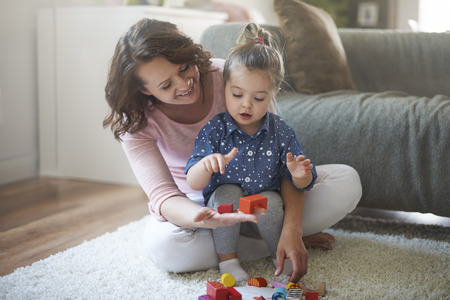When I was in primary school, we received letter grades for character, such as “Kindness,” “Helpfulness,” and “Behavior.”
On the bus ride home one day, the girl next to me took one look at her report card and burst into tears. She had received a low grade for Mathematics.
“But look,” I said. “You aced your Character Report!”
If I thought that would console her, I was wrong.

“Who cares? My mom doesn’t even look at those,” the girl said.
Apparently, her parents were only impressed when she scored straight A‘s in academic courses.
But when it came to caring for others? Well, it didn’t seem to count for as much.
Want Successful and Happy Kids? Teach Them Empathy

According to a recent study by Harvard University, even though parents talk about being caring and considerate, a majority of kids appear to value academic achievement over helping others.
About 80% of the youth in the survey believe that their parents prioritise success and happiness over empathy. I’m sure that the girl on the bus believed the same about her parents.
To many Singaporeans, the fact that high achievement is the uppermost objective among youths might not be too surprising. After all, we have a reputation as a top-notch education hub – something to be proud of, indeed.
But in Singapore’s highly competitive and extremely rigorous education system, students have the near-singular mission of excelling in school. And they’re not the only ones to feel the pressure.
Their parents feel it, too. There are mothers who take time off work or who actually quit their jobs to help their children study.
The problem is that our children could be so focused on fighting for perfect marks that they’re in danger of falling behind on developing character and compassion.
Ironically, “when children can empathize with and take responsibility for others, they’re likely to be happier and more successful,” reported The Making Caring Common project at Harvard’s Graduate School of Education.
According to child psychologist and author Michele Borba, “happier and more successful kids care about others, they are able to relate, be concerned, and respect differences… Studies show that kids’ ability to feel for others affects their health, wealth and authentic happiness as well as their emotional, social, cognitive development and performance.”
Empathy is the key to social emotional development and human interaction; it allows you to understand and respect another person’s perspective, even if you don’t agree with their view.
Encouraging empathy at an early age prevents bullying and other acts of violence. In addition, this perspective-taking ability fosters strong relationships and enables children to become better collaborators, which will benefit them greatly their whole lives.
Someone who can empathise and take responsibility for others is more likely to thrive in the workplace, where success is often founded on effective collaboration.
Here are 5 tips to help your child develop empathy:
1. Understand and address your child’s emotional needs

When your child’s own emotional needs are being met at home, they are more likely to develop empathy.
Studies suggest that when children have a secure attachment with their parents or caregivers and feel that they can rely on them for support, they are better equipped to offer help to other children who are struggling.
The Making Caring Common project suggests a simple way to help children manage their feelings when they’re getting upset: “Stop, take a deep breath through the nose and exhale through the mouth, and count to five.”
When your child comes to you with a problem, help them cope with negative feelings in a compassionate and problem-solving-oriented way.
Validate their difficult emotions, and make your child feel valued by showing respect for their needs. Perhaps writer and educator Jessica Lahey put it best when she wrote, “Children who feel valued are more likely to value others.”
2. Help your child discover what they have in common with other people
Kids are more apt to be empathetic toward people who share similarities with them. While it’s easier for kids to feel concern toward someone close to them such as their family and friends, it’s also important to expand their circle of concern to include those who aren’t immediately connected to them.

Encourage your child to imagine the feelings of someone who may be vulnerable, such as a new kid in school, someone being teased, a person who speaks a different language than them, or a victim of a tragedy.
Perhaps they’re around the same age or live close by or attend the same class. Ask questions that allow your child to imagine himself in a similar tough situation, such as, “Have you ever felt left out?” “When have you felt frustrated?” “Do you think that person’s scared?”
You can also draw examples from the news to discuss other people’s challenges around the world with your child.
3. Provide daily opportunities for your child to practice being caring and helpful
Make it clear that you expect your child to help, even if they don’t feel like it.
The Making Caring Common project stresses the importance of instilling “daily repetition – whether it’s helping a friend with homework, pitching in around the house, having a classroom job, or working on a project on homelessness” so that children can make a habit of being helpful.
4. Point out acts of kindness
When I picked up my child from preschool one day, her teacher told me that there was a classmate who was crying during naptime. My daughter had then gone up to her classmate and patted her gently, then offered her a tissue. I couldn’t have been prouder of her action.
“Did your friend cry today?” I asked, and she nodded.
“You comforted her when you saw her crying. You’re very caring,” I said.
The next time you witness your child sharing their snacks with someone else or offering their rubber ducky to another kid at the pool, be vocal about their gesture.
Validate their action by saying, “You’re a good friend” or “That was very generous of you.”
By labeling these positive actions, you will let your child understand that being kind is something that you value.
5. Be a strong role model
When we treat other people with care, our kids’ notice and are more likely to follow our example. Our children acquire ethical values and conduct by watching our actions. It’s not enough to just talk about compassion if we aren’t also demonstrating fairness and compassion ourselves.
Consider participating in community service or offering your time and energy to other good causes. When your child is old enough, invite them to engage in these services with you. Doing good things together feels good!
Above all else, let your actions match your words.
And instead of telling them, “What’s important is that you’re happy,” consider saying, “What’s important is that you’re kind and you’re happy.”
By Jenny Tai.
This article was first published in The New Age Parents e-magazine.
This is part of TNAP ‘Value’ series. To read other parts of our ‘Value’ series:
– Teaching Our Children The Value Of… Being True To Themselves
– Teaching Our Children The Value Of…Giving Thanks
* * * * *
Like what you see here? Get parenting tips and stories straight to your inbox! Join our mailing list here.
Want to be heard 👂 and seen 👀 by over 100,000 parents in Singapore? We can help! Leave your contact here and we’ll be in touch.


























































Leave a Comment: